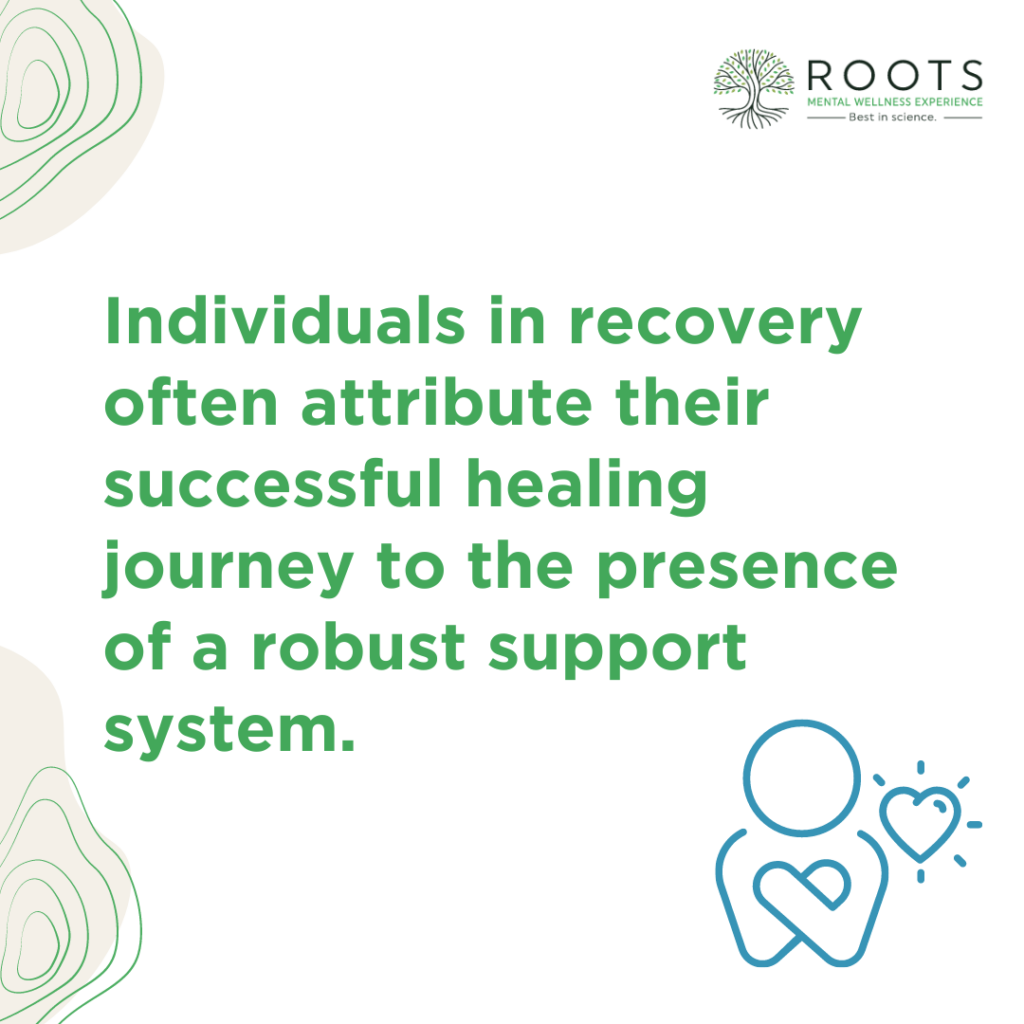
A large number of people struggle with addiction annually. In the past year, about 46.8 million Americans, ages 12 and up, had a substance use disorder.
Overcoming addiction doesn’t have to feel like a lifelong punishment. The journey to recovery begins with a single step, and it’s important to embrace this challenge if you’re committed to getting better.
Remember, having a supportive social network can significantly speed up your recovery process.

The Significance of a Supportive Social Environment in Recovery
Having a strong social support network during recovery acts as a safety net, providing emotional support. This means you’re surrounded by individuals who understand your struggles and are there to uplift you during challenging times.
They can help you stay on track and remind you of your goals in life. Having them can also reduce the feeling of loneliness by providing a sense of belonging and companionship.
Lastly, they offer practical assistance such as helping you with tasks or giving you rides to appointments, making your recovery journey a little easier to navigate.
Remember, your support network can come from many forms. It can be your:
- Family
- Friends
- Therapist
- Sponsors in recovery programs
- Support groups
The key to a faster recovery is to surround yourself with positive and understanding people who believe in your recovery.
However, while it may be important to have a strong social support, it’s also important to set boundaries with those who may not be supportive or may trigger your cravings.

5 Ways to Maintain Social Life in Recovery
Recovery can be challenging, but you don’t have to go through it alone. Here are ways to stay connected with friends and family during the recovery process.
Re-evaluating Social Relationships
Individuals in recovery often attribute their successful healing journey to the presence of a robust support system. However, it is also important to understand how these relationships impact your recovery process.
Check who’s truly supportive and who might not be so helpful right now. Hang out more with friends or family who are there for you, and less with those who aren’t. This ensures that you surround yourself with positive influences during your time of recovery.
Supportive friends and family members are like cheerleaders who lift you up, offering words of encouragement, understanding, and helpful advice. They are essential in helping you stay focused on your goals and get past any challenges you encounter along the way.
On the other hand, spending time with people who aren’t so supportive can drag you down. They might bring negativity into your life or tempt you to go back to old habits related to your addiction.
So, it’s important to surround yourself with positivity and avoid influences that could slow your progress or hold you back.
Setting Boundaries for Social Interactions
Establishing boundaries doesn’t mean isolating yourself. Rather, it’s about surrounding yourself with a supportive community that aids in your recovery and overall well-being. For those in recovery, certain social settings, such as parties, bars, or casual gatherings with friends, may present challenges and trigger temptations to relapse.
Setting boundaries, like avoiding these situations or limiting your time in them, helps you minimize exposure to triggers and protects your recovery.

Finding and Building a Supportive Community
Another aspect to consider is how social interactions can either support or hinder your progress. Surrounding yourself with a supportive community can help you:
Boost your motivation
Being surrounded by positive individuals boosts your morale and motivates you to remain committed to your journey. Their belief in you acts as a powerful deterrent against substance use, steering you towards maintaining a lifestyle free of substances.
Provide a safe place
A supportive community such as rehab, is a place where you can freely talk about your problems and be happy about your successes without worrying about being judged. Being able to fit in enables you to feel safe emotionally.
Communicating Your Needs and Recovery Journey
Opening up about your recovery process and needs to those close to you is crucial as it cultivates a supportive network around you. By bringing your family and friends into your recovery circle, they gain insight into your experiences and challenges, enabling them to offer assistance when you need it the most.
Celebrating Milestones with Your Social Circle
Giving yourself credit for what you’ve accomplished can help you stay focused on your goals. It shows you’re making progress, keeps you motivated, and reminds you that you’re not doing this alone.
You can celebrate your small or big wins by spending time with your family and friends, planning a trip, doing something fun and exciting, and enjoying nature.
Parties and celebrations make you think about all the great things you’ve achieved instead of the things you’ve had to stop. This positive way of looking at things helps you fight against cravings and reminds you of all the good parts of getting better.

Conclusion
Recovery is not something you do all by yourself. Having a network of supportive individuals by your side can ease the process, enhancing your chances of success.
Being honest and trustworthy, and avoiding things that can set you back, are important when you’re trying to recover. And when you reach milestones in your recovery, it feels like a big win that boosts your motivation.
Join us at Roots Through Recovery to start anew and rediscover the joy of connecting with others.




